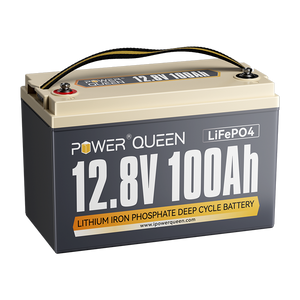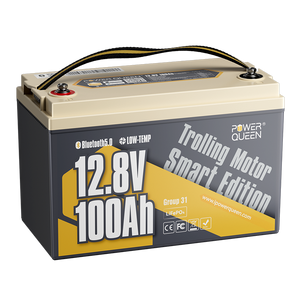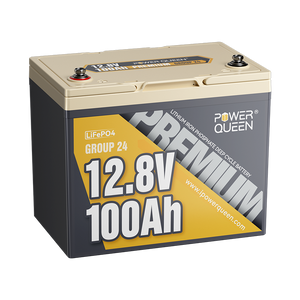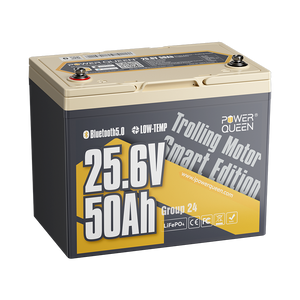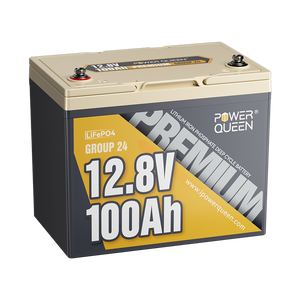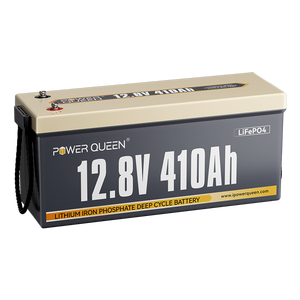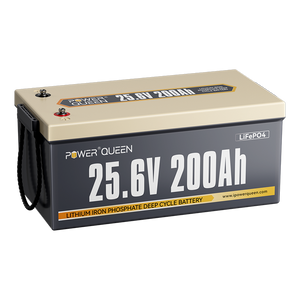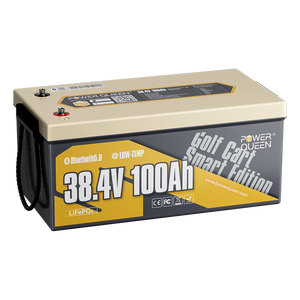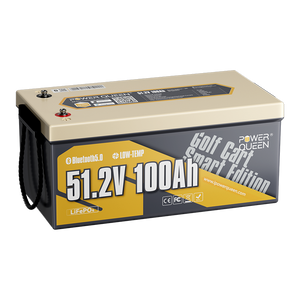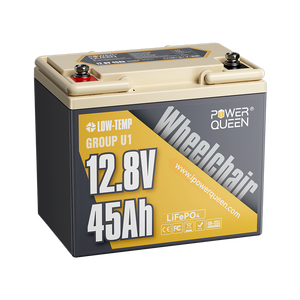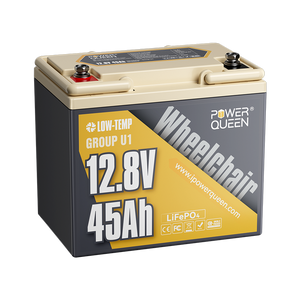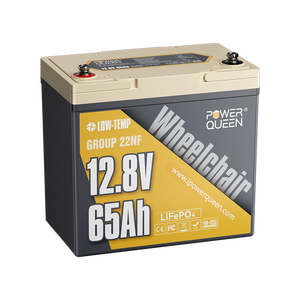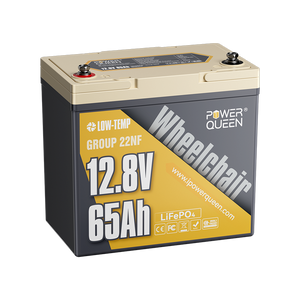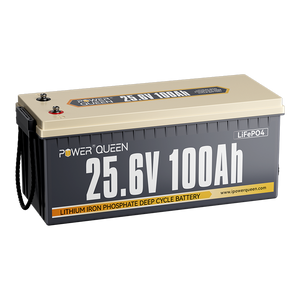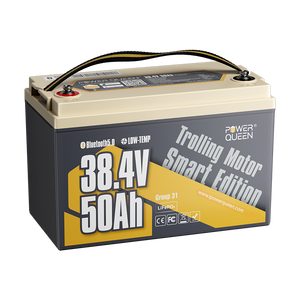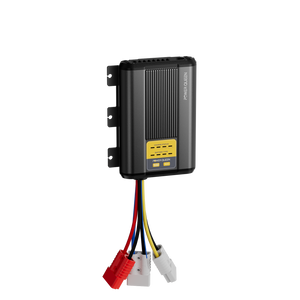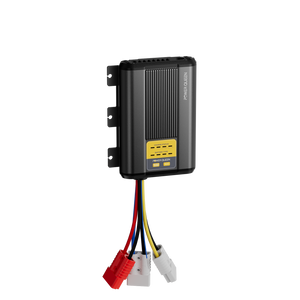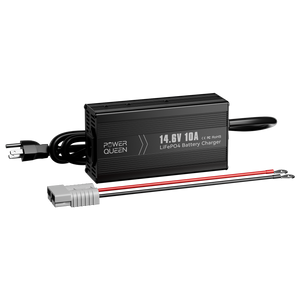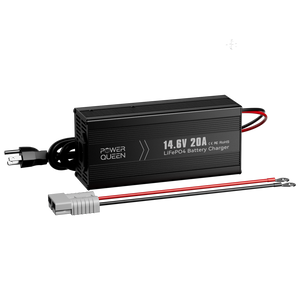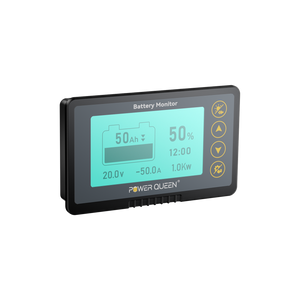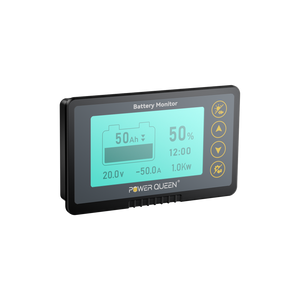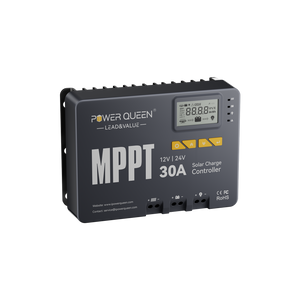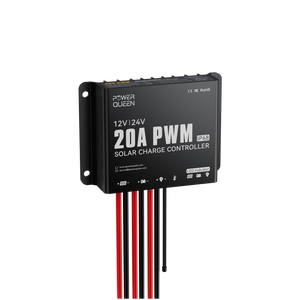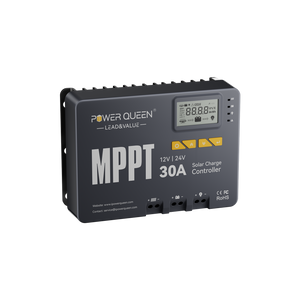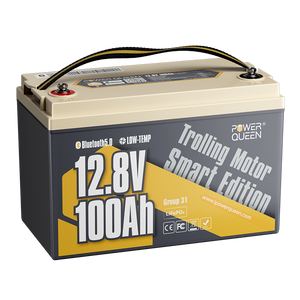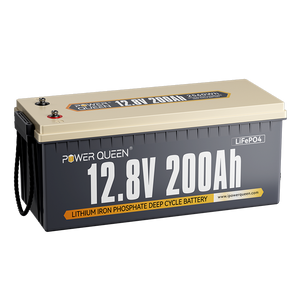Do Lithium Batteries Leak? How to Prevent?
In the world of portable electronic devices, lithium batteries have become increasingly popular due to their high energy density and long lifespan. However, one concern that often arises among users: do lithium batteries leak? The truth is: yes they can.
In this article, we will explore the potential for lithium batteries to leak and provide you with important information on how to prevent such incidents.
Do Lithium Batteries Leak?
Lithium-ion batteries have a very low likelihood of spilling, but like any battery, there is a small risk. It is important to minimize this risk by taking precautions.
It is crucial to ensure that the voltage supplied by the battery is suitable for your equipment or that your device can handle the voltage provided.
One advantage of lithium batteries is their ability to maintain power for extended periods. Even when left plugged in for a long time, your devices' batteries will continue to function without any negative effects. This is not the case with alkaline batteries, as they release gas when exposed to high pressure and dampness.
As long as you take proper measures to prevent leakage, lithium batteries are safe to use.
The combination of portability and reliability has led to the rapid adoption of lithium batteries. Under normal conditions, they are leak-proof. It is recommended to store them with a charge level between 50 and 70 percent and in a dry and cool location.
In Which Situation the Lithium Batteries Leak
Lithium-ion batteries have a minimal risk of leakage compared to other types of batteries. However, in rare cases, lithium batteries can leak if they are physically damaged or if they are exposed to extreme temperatures. If the battery casing is punctured, the chemicals inside the battery can leak out, potentially causing harm. Below are some details.
1.Overcharging:
Lithium batteries may leak if they are overcharged, as the electrolyte inside degrades and gases are released. This can lead to battery expansion and, in extreme cases, bursting open. However, modern lithium batteries, such as Power Queen LiFePO4 lithium batteries, are equipped with overcharge protection circuits BMS (Battery Management System) to prevent this from happening. These circuits help regulate the charging process and minimize the risk of overcharging and subsequent leakage.

2. Damage
Lithium-ion batteries can also leak if they are physically damaged, such as being dropped or punctured. When a battery is damaged, the electrolyte may seep out and react with other components, leading to leakage. To address this issue, reputable lithium battery manufacturers often conduct rigorous drop tests to evaluate the durability and resistance of their products against damage. By ensuring you get batteries from reliable sources like Power Queen, you reduce the likelihood of leakage due to damage.
3.Deficiencies in Production
Although rare, leaky batteries can result from manufacturing flaws, particularly faults in the battery's seals. If the seals are inadequately constructed, electrolytes may leak out, causing leakage. To mitigate this risk, it is important to source new batteries from trusted stores and reputable lithium-cell battery producers.
4.Temperature
Lithium batteries are susceptible to leakage if exposed to excessively high temperatures beyond their safe range. The elevated temperature can damage the electrolyte, causing it to leak out of the battery. To prevent this type of leakage, it is crucial to store lithium batteries in a cool and dry environment, adhering to the manufacturer's instructions. By maintaining the batteries within the recommended temperature range, you can help prevent leakage due to temperature-induced damage.
LiFePO4 lithium battery temperature.
| Charge Temperature: | 0℃ to 50℃ / 32℉ to 122℉ |
| Discharge Temperature: | -20℃ to 60℃ / -4℉ to 140℉ |
| Storage Temperature: | -10℃ to 50℃ / 14℉ to 122℉ |
Instantly Treating When Lithium Battery Leaks
Check the battery case for any visible damage, such as dents or punctures, that may cause leakage. Be cautious of improper battery installation or welding slag in the battery box.
Remove the cover plate and inspect the safety valve for signs of acid leaks. Ensure the valve is open and observe if electrolyte is flowing into the battery.
If the previous steps appear normal, test the seal by pressurizing and immersing it in water. Look for air bubbles, as they indicate a faulty seal. If no bubbles are present, the seal is likely intact.
During the charging process, check for the presence of electrolyte. If detected, carefully remove it.
Once the source of the leak is identified, carefully clean the affected area using a knife. Then, apply a strong adhesive designed for batteries to seal the leak.
Remember that battery quality is directly linked to leakage incidents. When purchasing batteries, prioritize authentic and high-quality options from trusted suppliers.
How to Prevent Lithium Battery from Leaking
Here are a few additional tips to prevent lithium batteries from leaking:
1.Do not expose batteries to extreme temperatures
Extreme temperatures can cause lithium batteries to leak or degrade. Avoid storing or using batteries in excessively hot or cold environments, as this can damage the electrolyte inside the battery.
2. Avoid using damaged batteries
Using damaged batteries increases the risk of leakage. If you notice any swelling, leakage, or unusual behavior from your lithium battery, discontinue use immediately and dispose of it safely.
3. Use reputable brands and sources
Choose high-quality lithium batteries from reputable manufacturers and trusted sources. Cheap or counterfeit batteries may have lower quality standards and are more likely to leak or fail.
4. Use battery cases or holders
Using battery cases or holders can provide an extra layer of protection and prevent physical damage to the batteries. These protective accessories can minimize the risk of leakage due to accidental drops or impacts.
5. Properly dispose of old or damaged batteries
When it's time to replace your lithium batteries, make sure to dispose of them properly. Many retailers and recycling centers accept old batteries, ensuring they are disposed of in an environmentally friendly manner.
By following these additional tips, you can further reduce the risk of lithium battery leakage and ensure their safe and optimal use.
How to Check if a Lithium Battery is Leaking?
To determine if a lithium battery is leaking, you can employ the following methods:
Visual Inspection:
Carefully examine the battery for any visible indications of leakage. Look for discolored or swollen areas, corrosion, or a sticky substance around the battery, as these could be signs of a leak.
Odor Detection:
A leaking lithium battery may emit a distinct chemical odor. If you notice any peculiar or strong smells emanating from the battery, it could be an indication of leakage.
Performance Issues:
If the battery fails to deliver the expected power or if the device powered by the battery malfunctions, it could be due to a leakage problem.
If you observe any of these indications, it's crucial to handle the battery with care. Wear protective gloves and dispose of it properly in accordance with local regulations for hazardous waste.
What to Do if Accidentally Puncture The Lithium Battery
If you accidentally puncture a lithium-ion battery, it is important to take immediate action and handle the situation with care. Here are the steps you should follow:
Identify the battery
Determine what type of lithium-ion battery it is and the chemicals it contains. This information will help you assess the potential risks and proper course of action.
Evacuate if necessary
If you have punctured a soft pack or prismatic lithium-ion battery, which are highly flammable, evacuate the area immediately and contact the fire department for assistance. Safety should be the top priority in such situations.
Monitor for fire
Wait for at least 24 hours to see if any fire occurs after puncturing the battery. If there is no sign of fire or if a small fire has been brought under control, it may be safe to disconnect the battery from the electrical system.
Disconnect the battery
If you determine it is safe to do so, quickly disconnect the damaged lithium-ion battery from the electrical system. This will help prevent any further electronic or thermal damage.
Safely store the battery
Place the punctured cylindrical battery in a safe location away from flammable materials. Make sure it is stored in an area where any potential fire can be easily contained.
Seek professional help
If you are unsure about the proper steps to take, it is recommended to contact your local fire department or emergency services for guidance and assistance.
Follow disposal regulations
Punctured or damaged lithium-ion batteries should be disposed of in accordance with all applicable municipal, state, and federal regulations. This ensures proper handling and prevents any potential harm to the environment.
What is The Most Unlikely to Leak Lithium Battery
Among leading lithium-ion battery chemistries, lithium iron phosphate (LiFePO4 or LFP) technologies have demonstrated enhanced intrinsic resistance to leakage issues compared to alternatives like lithium-cobalt oxide or lithium-nickel-manganese-cobalt oxide. A stable phosphate cathode and inert electrolyte system contribute to reduced chemical reactivity that can otherwise initiate unwanted releases.
While much safer overall, no battery technology can be entirely faultless or immune to all failure modes. However, LFP batteries are far less prone to thermal runaway chains due to their chemistry's retarded oxidation properties. This lowered risk of uncontrolled overheating alleviates a primary driver for chemical rupture and leakage in less stable lithium-ion cells.
Additional advantages like expanded temperature operating ranges and longer cycle life expectancy further diminish leakage likelihoods. By minimizing stresses on containment mechanisms, LFP batteries can better shield enclosed electrolytes from environmental exposure over broader use profiles than many competitors.
Of course, prudent handling always remains important. But LFP technologies' inherent attributes provide a formidable foundation for enhanced protection against unwanted emissions throughout battery service life. For applications favoring utmost safety, their phosphate compositions represent a compelling option.
Does a LiFePO4 Lithium Battery Leak Toxic
No, LiFePO4 (lithium iron phosphate) lithium batteries do not contain toxic materials that would leak out if the battery is damaged. Unlike other lithium battery chemistries, LiFePO4 batteries are considered to be much safer and more stable. They have a lower risk of leakage or thermal runaway. LiFePO4 batteries are made with non-toxic materials, making them environmentally friendly and safe to use.
Power Queen: Your Reliable and Trustworthy Friend
Power Queen, a prominent player in the lithium industry, has gained worldwide acclaim for their exceptional lithium iron phosphate (LiFePO4) battery systems. These cutting-edge batteries are not only competitively priced but also boast an impressive capacity for over 4,000 deep-cycle charges per unit. With a typical lifespan of over 10 years, these LiFePO4 batteries offer long-lasting performance that surpasses industry standards.

![⚡[Final $179]⚡Power Queen 12V 100Ah Group 31 Deep Cycle Lithium Battery - Power Queen US](//ipowerqueen.com/cdn/shop/files/100_pd.jpg?crop=center&format=webp&v=1760493458&width=400)
![⚡[Final $179]⚡Power Queen 12V 100Ah Group 31 Deep Cycle Lithium Battery - Power Queen US](http://ipowerqueen.com/cdn/shop/files/100_pd.jpg?crop=center&format=webp&v=1760493458&width=400)
Learn more reviews about Power Queen.
Conclusion
Leakage is a concern that can potentially affect any battery. However, lithium iron phosphate (LiFePO4) batteries have inherent design advantages that greatly reduce the risk. By following responsible usage practices and adhering to guidelines provided by reputable manufacturers, users can confidently rely on LiFePO4 power solutions for their safety and reliability.
Despite the resilience of LiFePO4 batteries, it is important to note that proper care and handling are still necessary. While this chemistry minimizes the probability of leaks, it is always advisable to exercise caution and adhere to best practices to ensure maximum uptime and safety.


